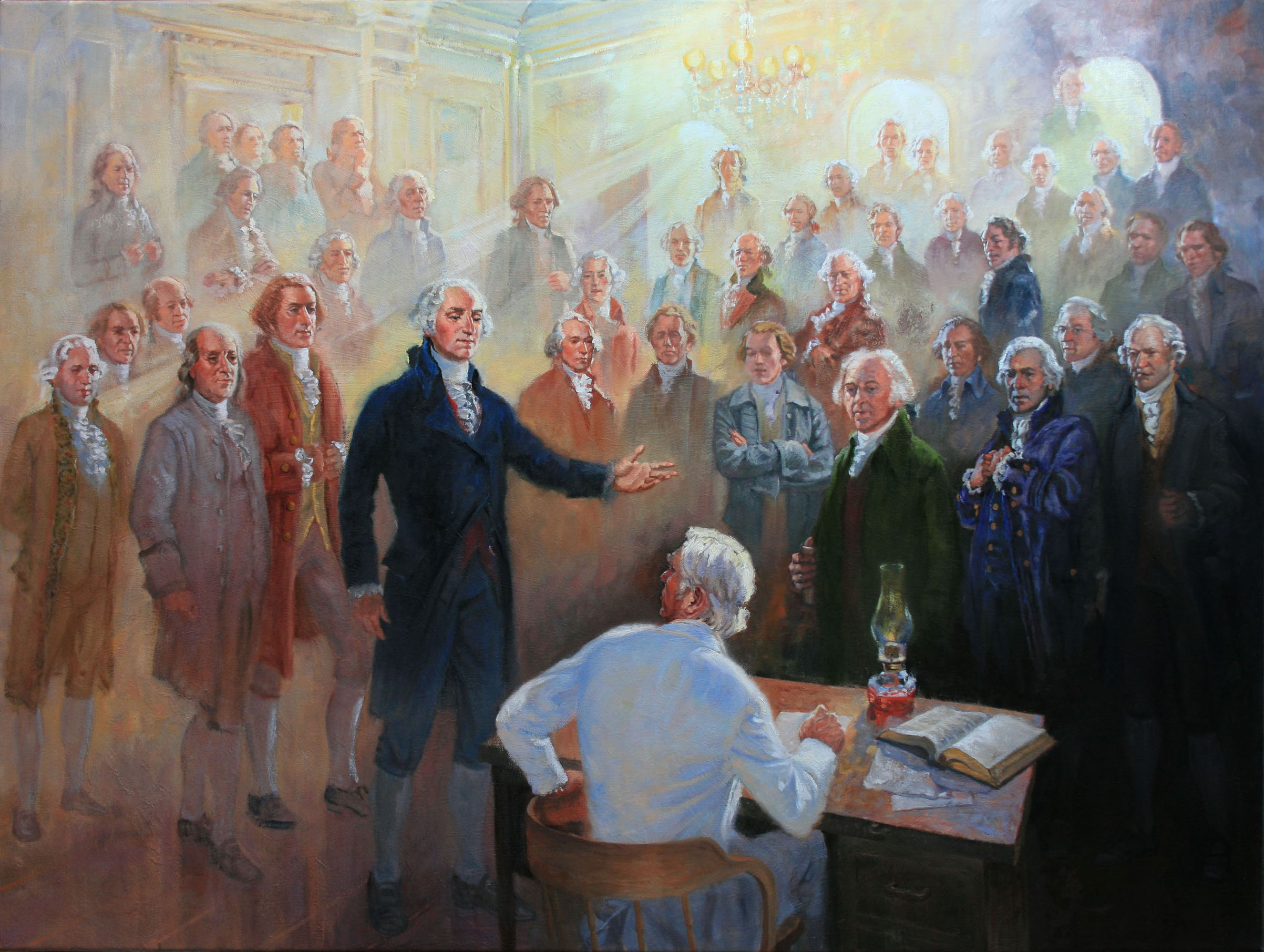Two weeks before I left St. George, the spirits of the dead gathered around me, wanting to know why we did not redeem them. Said they, “You have had the use of the Endowment House for a number of years, and yet nothing has ever been done for us. We laid the foundation of the government you now enjoy, and we never apostatized from it, but we remained true to it and were faithful to God. Everyone of those men that signed the Declaration of Independence, with General Washington, called upon me as an Apostle of the Lord Jesus Christ, in the Temple at St. George, two consecutive nights, and demanded at my hands that I should go forth and attend to the ordinances of the House of God for them. I straightway went into the baptismal font and called upon Brother McCallister to baptize me for the signers of the Declaration of Independence, and fifty other eminent men, making one hundred in all, including John Wesley, Columbus, and others. When Brother McAllister had baptized me for the 100 names I baptized him for 21, including General Washington and his forefathers and all the Presidents of the United States–except three. Sister Lucy Bigelow Young went forth into the font and was baptized for Martha Washington and her family and 70 of the ’eminent women’ of the world. 1 In the April 1898 General Conference, President Woodruff again recalled this sacred experience: ““I am going to bear my testimony to this assembly, if I never do it again in my life, that those men who laid the foundation of this American government and signed the Declaration of Independence were the best spirits the God of heaven could find on the face of the earth. They were choice spirits, not wicked men. General Washington and all the men that labored for the purpose were inspired of the Lord. Another thing I am going to say here, because I have a right to say it. Everyone of those men that signed the Declaration of Independence, with General Washington, called upon me, as an Apostle of the Lord Jesus Christ, in the Temple at St. George, two consecutive nights, and demanded at my hands that I should go forth and attend to the ordinances of the House of God for them. Men are here, I believe, that know of this, Brother J. D. T. McAllister, David H. Cannon and James S. Bleak. Brother McAllister baptized me for all those men, and then I told these brethren that it was their duty to go into the Temple and labor until they had got endowments for all of them. They did it. Would those spirits have called up on me, as an Elder in Israel to perform that work if they had not been noble spirits before God? They would not.” 2 On the night of March 19th, 1894, he [Wilford Woodruff] had a dream which followed his meditations upon the future life and the work that he had done for the dead. In his dream there appeared to him Benjamin Franklin for whom he had performed important ceremonies in the House of God. This distinguished patriot, according to his dream, sought further blessings in the Temple of God at the hands of his benefactor. President Woodruff wrote: ‘I spent some time with him and we talked over our Temple ordinances which had been administered for Franklin and others. He wanted more work done for him than had already been done. I promised him it should be done. I awoke and then made up my mind to receive further blessings for Benjamin Franklin and George Washington.’ The appearance, therefore, in his dream of Franklin was to him a satisfying conclusion that he had at least received joyfully the blessings that came to him from the ordinances of the Lord’s House.
(Matthias E. Cowley, Wilfrod Woodruff–His Life and Labors, p. 585-9, found at https://josephsmithfoundation.org/wiki/eminent-spirits-appear-to-wilford-woodruff/ )
You have had the use of the Endowment House for a number of years, and yet nothing has ever been done for us. We laid the foundation of the government you now enjoy, and we never apostatized from it, but we remained true to it and were faithful to God. (Wilford Woodruff, in a Conference Report, April 10, 1898; Discourses of Wilford Woodruff, pp. 160-61; Wilford Woodruff Journal, August 21, 1877. found at https://historyofmormonism.com/2015/05/25/wilford-woodruff-founding-fathers/)
-
President George Washington was ordained a high priest at that time. You will also be interested to know that according to Wilford Woodruff’s journal, John Wesley, Benjamin Franklin, and Christopher Columbus were also ordained high priests at that time. (Ezra Taft Benson, Sandy, Utah, 30 December 1978; Teachings of Ezra Taft Benson, p. 603, found at https://josephsmithfoundation.org/wiki/eminent-spirits-appear-to-wilford-woodruff/ )-




